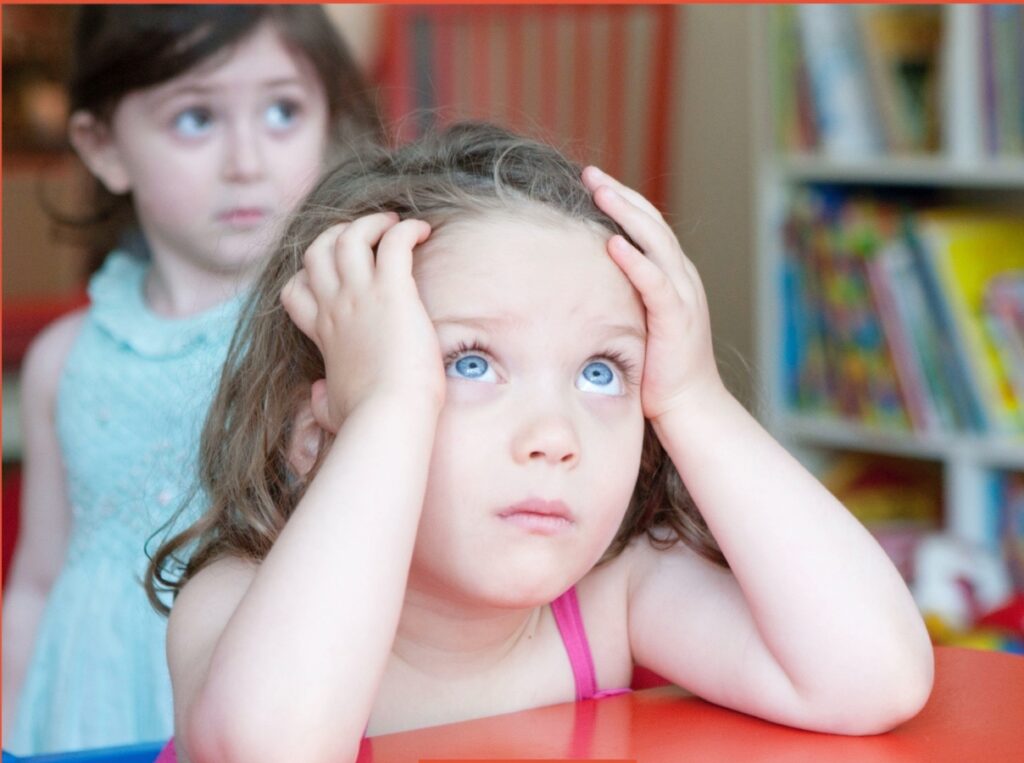It’s almost back-to-school time!
For families with young children, the days leading up to the first day of school are full of excitement—and maybe some nerves and big feelings.
A happy start to the school year begins at home!
Here are 10 of our best tips for preparing your little one to enter a preschool or program for the first time—or to smooth the return after summer break!
★★★
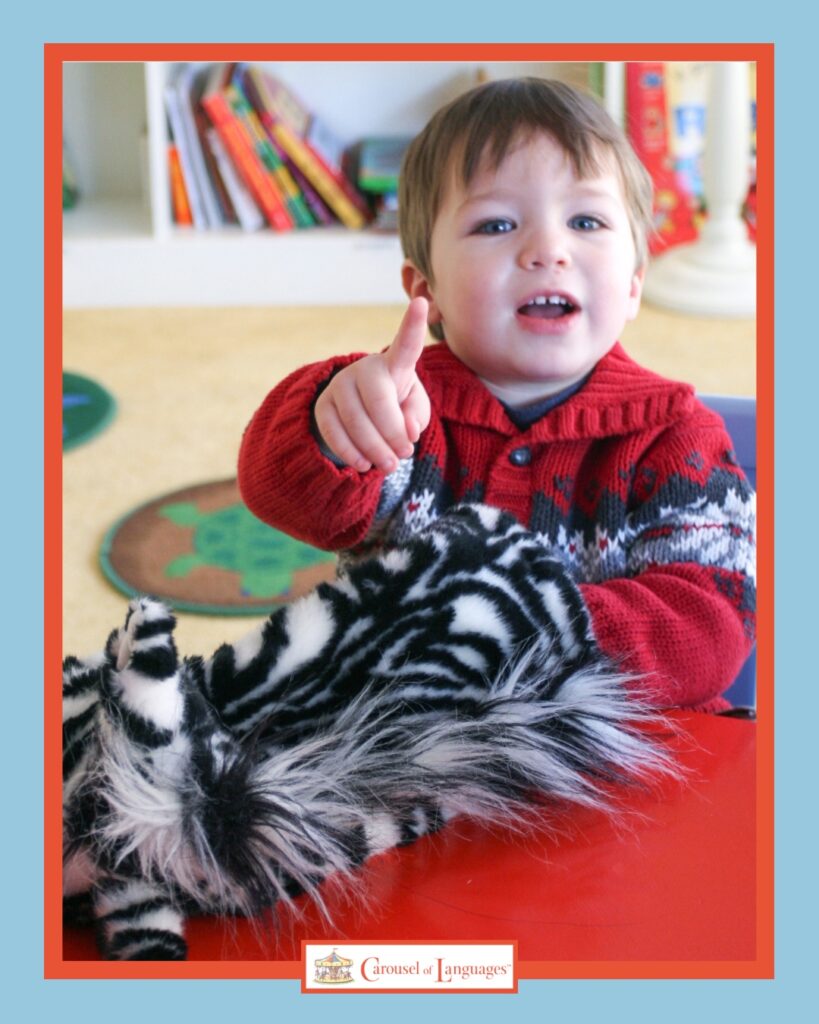
Talk it up!
Talk with your child about starting school. Be enthusiastic and specific—chat about how much fun it will be to meet the kind teacher and make new friends, play with different toys, do art projects, play games, read books, do puzzles, sing, and move their bodies. Tell them how exciting it is to be a big kid and learn all sorts of new things. Share some of your own memories of school.
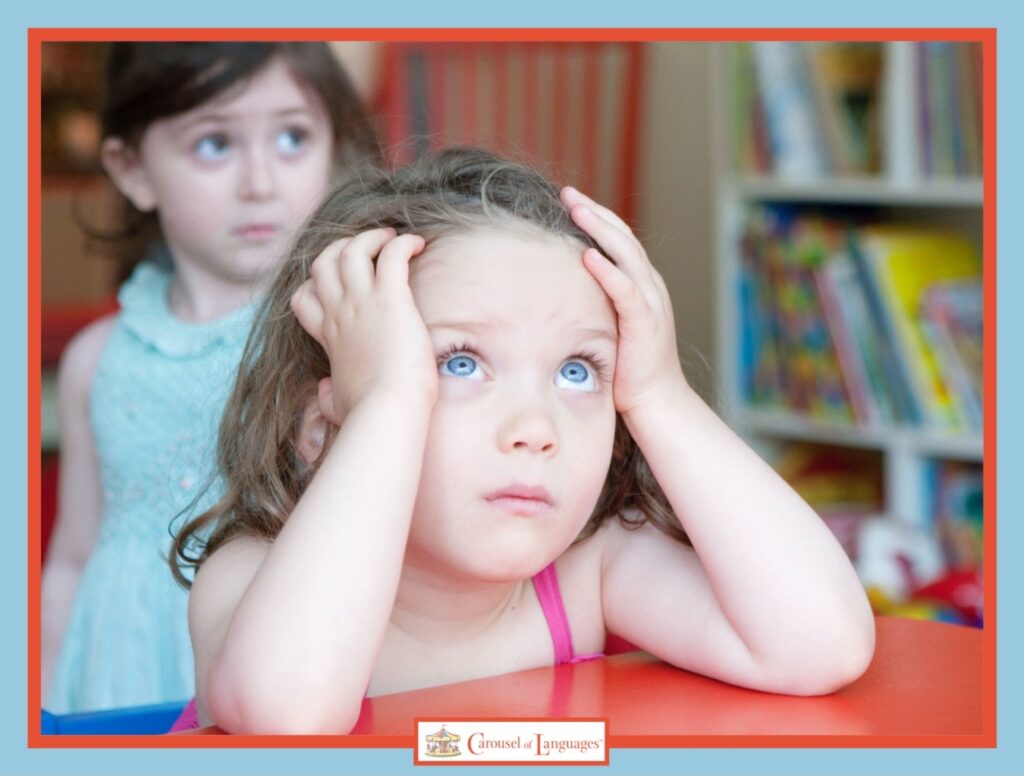
Normalize All the Feelings
Listen to your child when they express worries about school. Be patient with their questions and concerns. It’s normal to have lots of different feelings. They may be excited, curious, and happy sometimes; scared, sad, withdrawn, or clingy at other times. Let them know they’re not alone—most of the other children about to start school are having all those same feelings!
It may be difficult for your young child to express exactly how they’re feeling. Don’t be afraid to help them put it into words. It seems like you’re a little worried about being away from me. I understand.
Offer reassurance, and again, be specific. Instead of just saying “don’t worry,” help them develop strategies for feeling better. You could pack a picture of your family in the backpack, or a “lovey” toy; explain that the teacher is great at helping children feel happy and comfortable at school.
Take a field trip…TO school!
Familiar surroundings can be very helpful during this big transition. Visit your child’s school or program ahead of time if possible. Take a walk around and admire all the interesting things that are there. Meet the teacher if you can. This one simple step can remove several big unknowns on the big day.
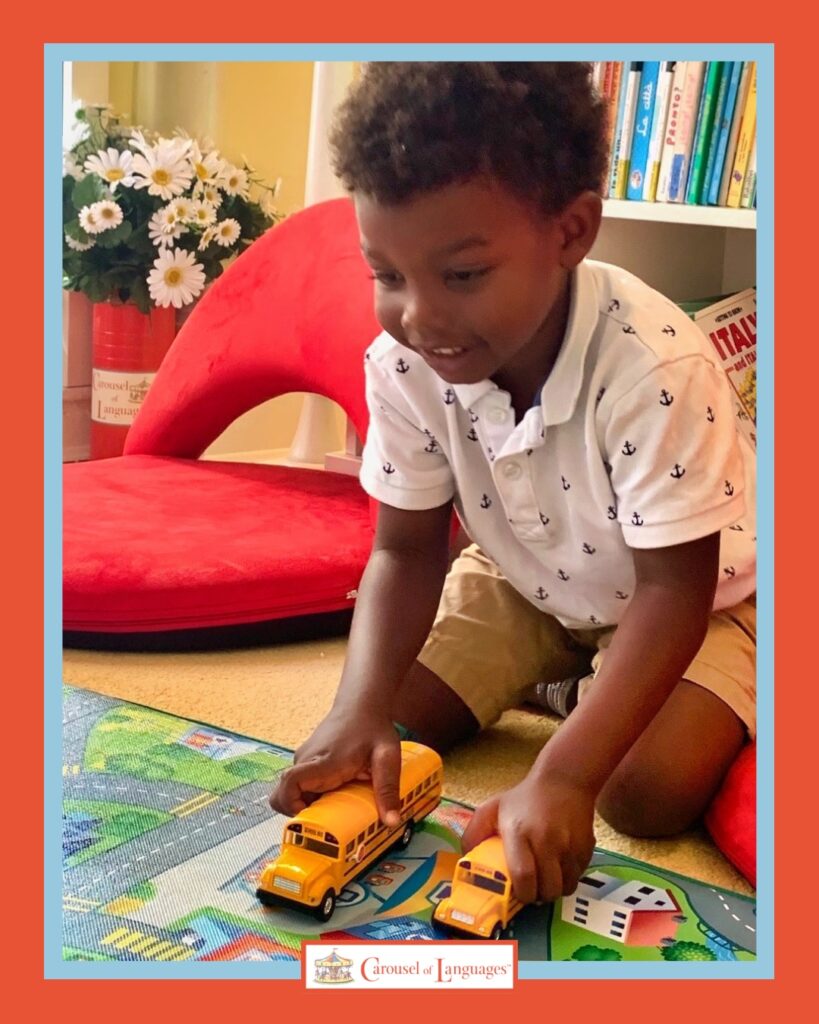
Play School at Home
For the young child, play is never just play. Swiss psychologist Jean Piaget, who made the first formal study of cognitive development in children, famously said, “Play is the work of the young child.”
When children play-pretend, they rehearse for real life. As they imagine and interact, they practice verbal skills, vocabulary, and many essential life skills; they problem-solve and resolve conflicts.
The imaginative, child-directed scenarios that they act out are important for social-emotional development, as well—the growth of positive relationships, learning to express needs and feelings, regulate emotions, resolve conflicts, and more. Your child may find it easier to express difficult feelings through dramatic play or by using puppets.
So encourage your child to play school! Set up a classroom of dolls and stuffed animals; take turns being the teacher. Act out some things they might do, such as look at the calendar, eat lunch, practice writing their names, and sing songs.
Let your child lead with their imagination of what it will be like. Chances are they’ve seen school on television, or read books about it, or watched an older sibling go, and already have ideas of what school is all about.
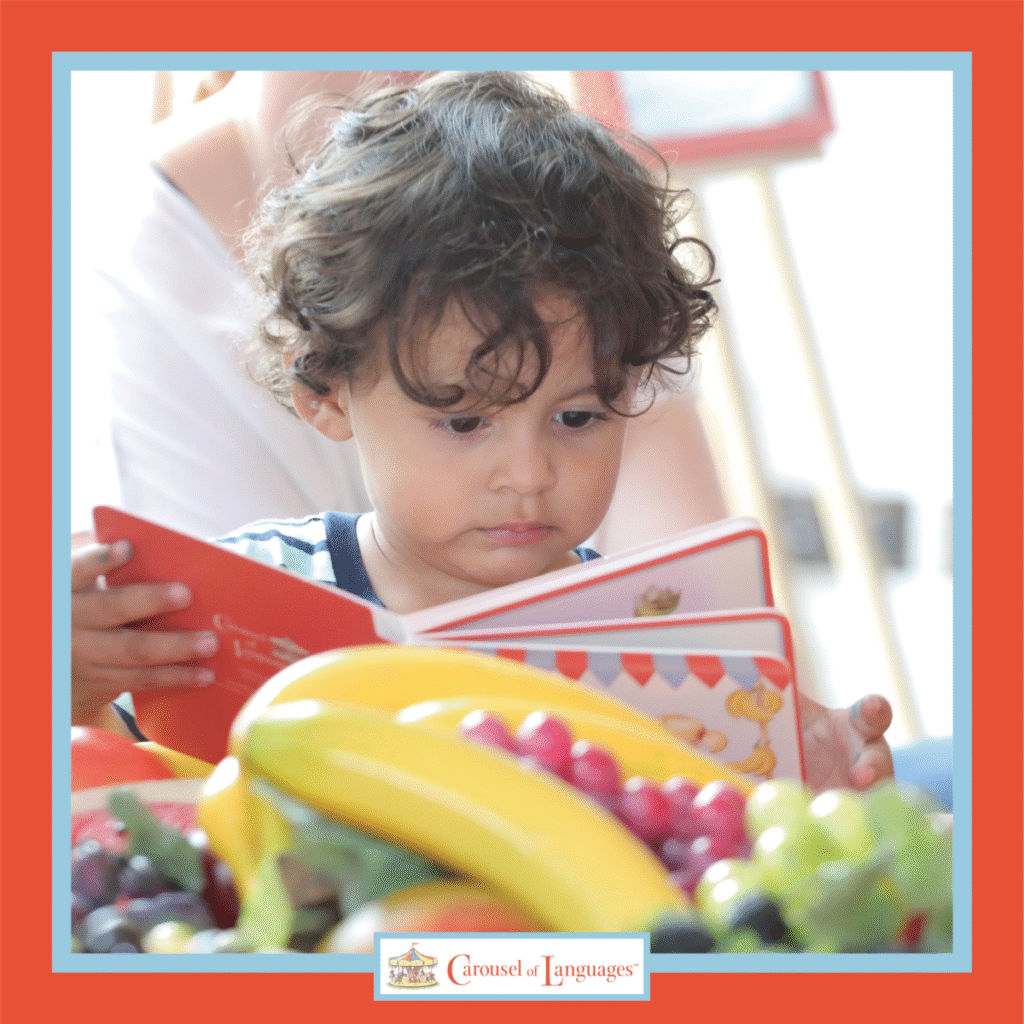
Read, Read, Read
There are many great books about starting school! Stories help us in so many ways. Read (and reread!) to learn about school, create familiarity, normalize feelings, have a good laugh, and more.
Here are a few of our favorites:
- The Pigeon has to Go to School, by Mo Willems, is a hilarious take on overcoming first-day-of-school worries.
- Carousel kids love the whole Pete the Cat series! Look for Pete the Cat: Rocking in my School Shoes
- For young children who may be having trouble separating from a parent for the first time, we love The Kissing Hand by Audrey Penn. Learn how Chester Raccoon’s mommy makes him feel happy, safe, and loved when he goes off to school.
- It’s Back to School We Go, by Ellen Jackson, is a beautifully illustrated multicultural book that tells stories about the first day of school from the perspective of kids in 11 different countries.
Gather Your Gear
Involve your child in preparing the things they’ll need for school. Let them pick out a backpack and lunch box, and decide what will go inside (a special toy or favorite snack can be a comfort on the first day). Show them how you label everything with their name. Pick out clothes together.
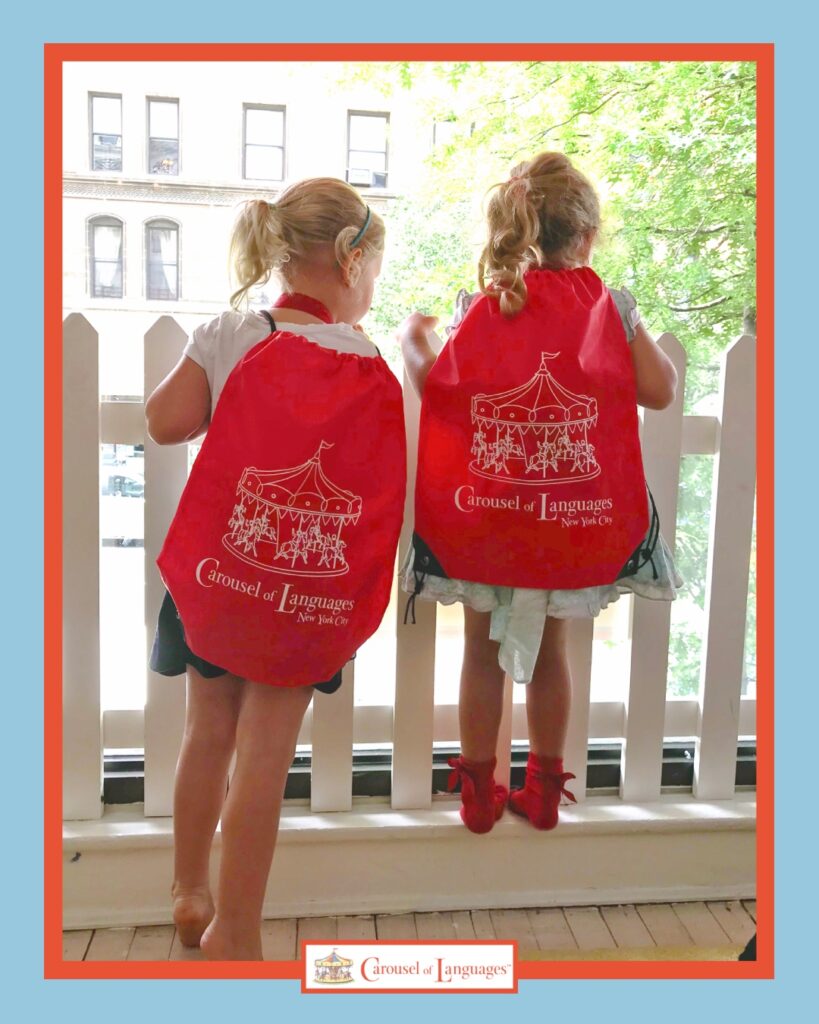
Yes I can!
Knowing how to do some basic personal tasks will help your child build confidence and independence. Practice putting on shoes, buttoning up the coat, opening the lunch box, unzipping the backpack, using the restroom, and washing their hands.
Get a Head Start
Long summer days often mean later bedtimes, so start shifting the schedule a week or two ahead of time to make sure your child is well-rested and has adjusted to the new wake-up and departure time. Practice your morning routine so it’s familiar on the big day.
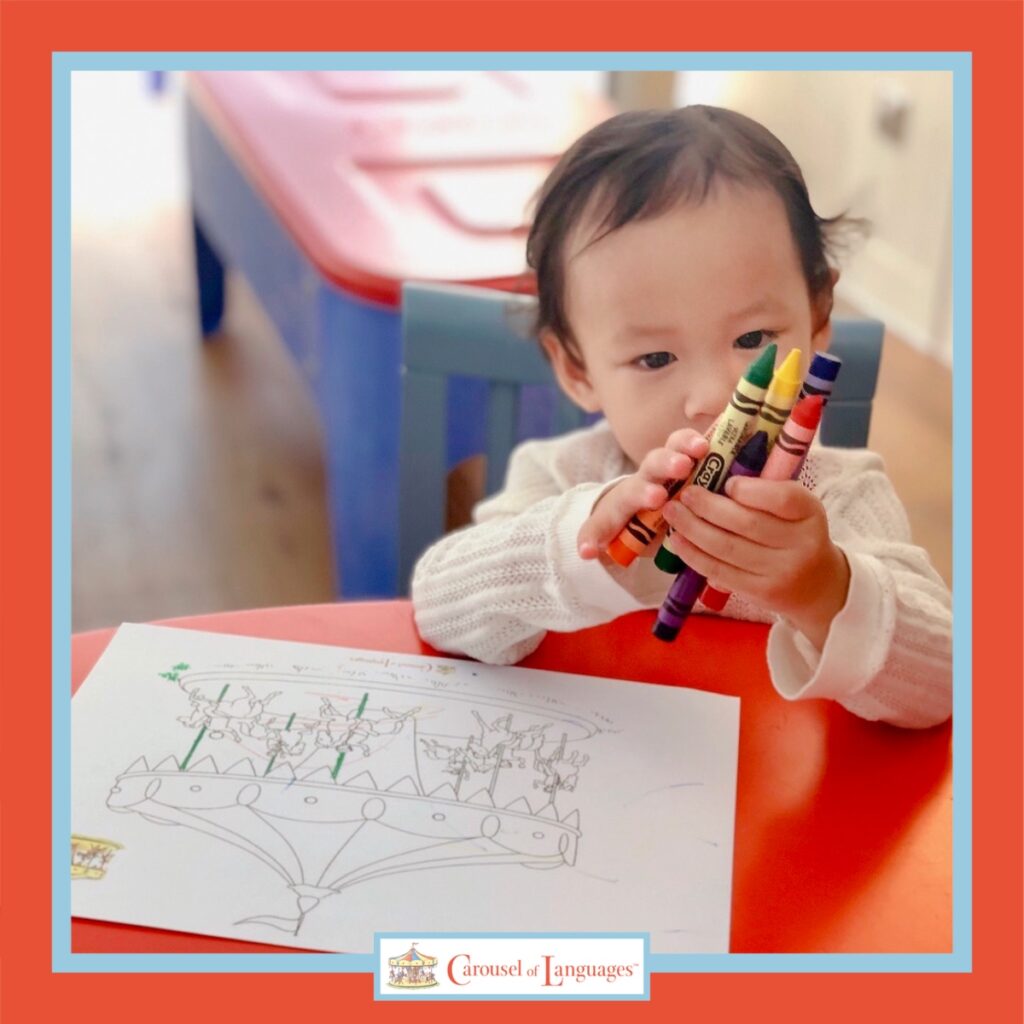
Good Morning Routine
Young children thrive on routine. Knowing what’s coming next makes them feel secure and happy. Structure builds confidence and independence, and encourages children to take important steps in the development of executive function: organization, memory, and self-regulation.
Plan your morning carefully so the first days will be relaxed, not nerve-wracking. Get up early enough to leave time for some cuddles or play or to read a book; have a yummy, nutritious breakfast, pack the backpack, and get to school without rushing.
Short, Sweet, and Special
A kiss to put in their pocket, a big squeeze, a high five, or a special phrase…create a brief, warm, comforting, and personal goodbye routine that’s all your own.
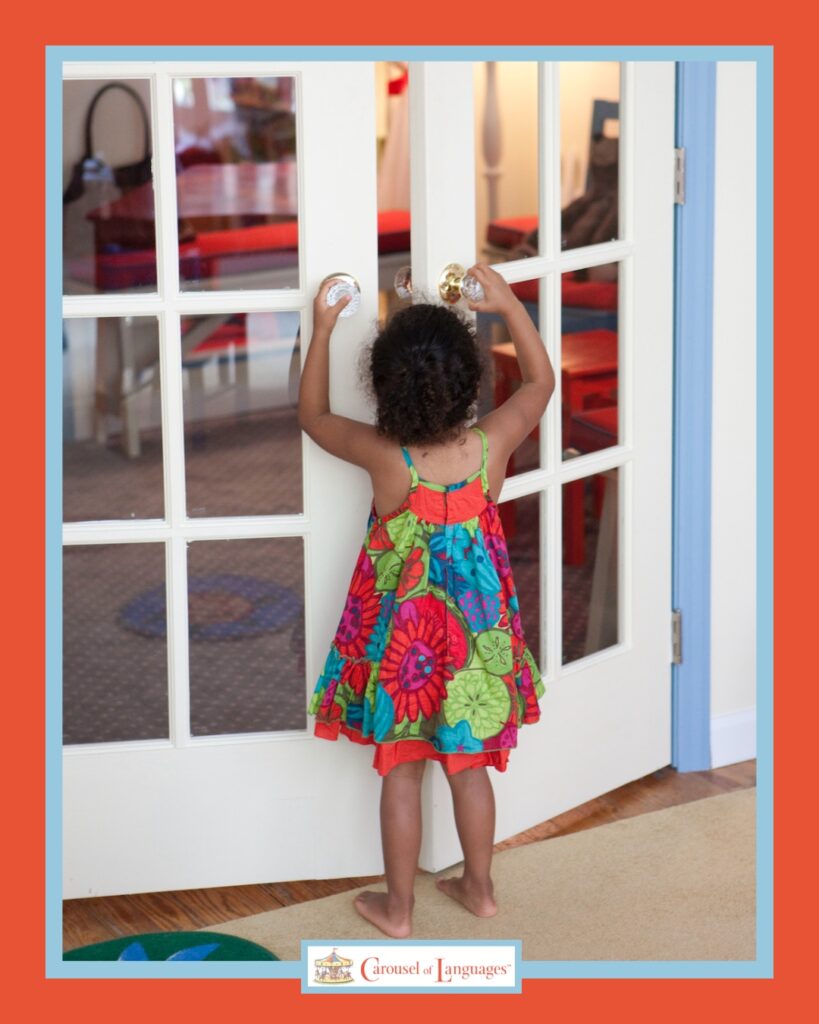
★★★
Because we understand the importance of beginning foreign language study as early as possible, we focus on the most fertile language learning window: 0-5 years of age. We adore babies, toddlers, and preschoolers!
We also know that for many of our students, Carousel is their first formal educational experience.
A warm, nurturing, playful, family-like learning environment is central to what we do in our early childhood foreign language program, not only because positive interactions are vital to brain growth and language development, but also to ensure that your child’s first impressions and experiences of “school” are full of love, joy, beauty, encouragement, exploration, curiosity, and delight.
★★★
Whether your child is taking their first independent class,
starting a full-time program, or returning after summer break,
back-to-school is a big transition!
It can be full of mixed emotions for both parent and child.
But with a little preparation, you can smooth the way.
We’re here to help.
It’s going to be great!



